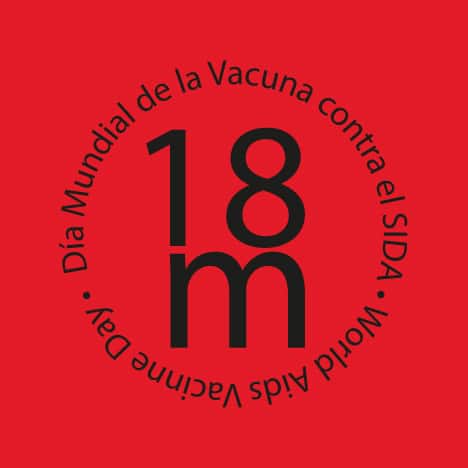May 18th
World AIDS Vaccine Day
Today, 6.6 million people in low and medium income countries have access to HIV/AIDS medication, 2.7 million new infections are produced and 1.8 million people die each year due to AIDS related causes. These are the numbers for today, the latest that UNAIDS has released. The rates tomorrow, those that the international community committed to overcoming by 2015 during the UN Special Session on AIDS that took place a year ago in New York, are much more ambitious: 15 million people on treatment or a 50% reduction of sexual transmission. The existence of an effective and accessible vaccine for AIDS would enable us to achieve these goals much more rapidly but also develop other objectives that are much more ambitious.
Today, no one questions that the long term strategy to put an end to the AIDS pandemic must not only extend HIV treatment coverage, prevention and care programs but must also include sustainable investment in research and development of the AIDS vaccine.
The UNAIDS strategy, “Getting to Zero,” gives a prominent place to the AIDS vaccine in order to realize the vision of achieving zero infections and zero HIV/AIDS deaths. And with good reason: mathematical models carried out by the International AIDS Vaccine Initiative (IAVI) and the Futures Institute show that even a first generation of vaccines with limited effectiveness, 50%, and administered to 30% of the general population could prevent more than 5 million infections between 2020 and 2030. The recently published document, “The Potential Impact of an AIDS Vaccine in Low- and Middle-Income Countries,” develops this further.
Yet again, World AIDS Day takes place at a time of economic constraints and budget cuts: on the one hand, it has yet to be confirmed what contribution the Spanish cooperation will make in 2012 for international research initiatives like IAVI. We hope that it will correct the tendency of the past two years and that Spain will again make significant contributions that can have a real impact. On the other hand, it will have to be analyzed whether the cuts to the research budget will affect research projects developed in Spain that are relevant for the AIDS vaccine.
Among the different options that can change this context of insufficient political and economic support for AIDS vaccine research, but also for other poverty related and neglected diseases, is the new European Union Research Framework Programme, entitled Horizon 2020, which is currently being debated in Europe (in the European Parliament and in the European Council) and which is key because it will establish the budget and research priorities of the European Union for the period of 2014-2020. Salud por Derecho is carrying out work with European and Spanish partners in order to ensure that Horizon 2020 dedicates more investment in R&D for poverty-related diseases. There are possibilities for increased investment, as the total budget is 40% greater than the previous one. Here you can find more information.
This demand for greater political and economic support for R&D for poverty-related diseases, and the AIDS vaccine in particular, comes out of a special context, as the current market system for research has not proven capable of responding to the health needs of a great part of the global population. For this reason, we end this piece focused on World AIDS day with the document that Health Action International (HAI), a global network of experts and organizations that works to increase access to essential medicines and of which Salud por Derecho is a member, recently released to support high impact measures that the Consultative Expert Working Group (CEWG) recommends to provide solutions to the form in which health research and development is incentivized, prioritized, and financed. This refers to what has colloquially been called a “Treaty.” Or, in other words, the Consultative Group recommends initiating negotiations to establish a Convention linked to biomedical R&D. Such an instrument should at least include the following elements:
- Adequate, predictable and equitable financing when dealing with priority R&D needs in global health.
- R&D coordination: improve the establishment of priorities based on global health needs.
- Instruments to establish norms that govern the public financing of R&D and ensure that R&D is not only more transparent, efficient, and needs-based, but also that medical products are accessible and affordable.
- Encourage R&D guided by an open knowledge innovation approach.
- Guarantee the greatest possible distribution and use of R&D results.
- Guarantee transparency of global medical innovation.
Our encouragement, gratitude, and appreciation goes out to all those who work so that the AIDS vaccine becomes a reality.
Referenced documents:
The Potential Impact of an AIDS Vaccine in Low- and Middle-Income Countries, IAVI
http://www.iavi.org/Information-Center/Publications/Documents/Global%20Impact%20Brief.pdf
Horizon 2020 position paper
Investigación y Desarrollo (I+D) para enfermedades olvidadas y relacionadas con la pobreza: una prioridad en el próximo Programa Marco Europeo de Investigación “Horizonte 2020″
A binding biomedical R&D convention: a structural solution for systemic failure, HAI
http://haieurope.org/wp-content/uploads/2012/05/14-May-HAI-Alianza-Policy-Brief-RD-Final.pdf












